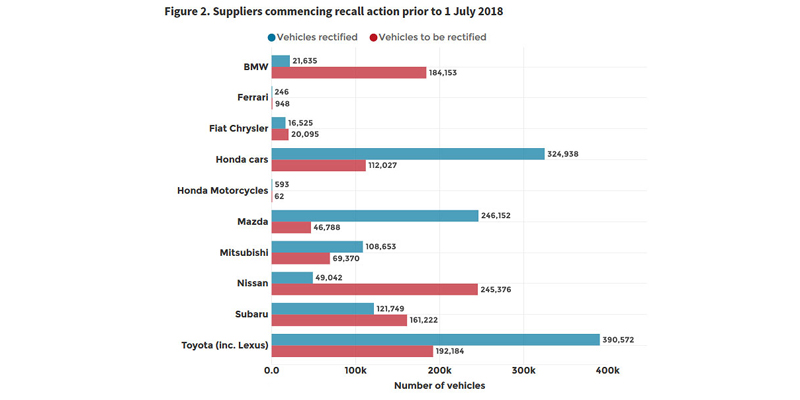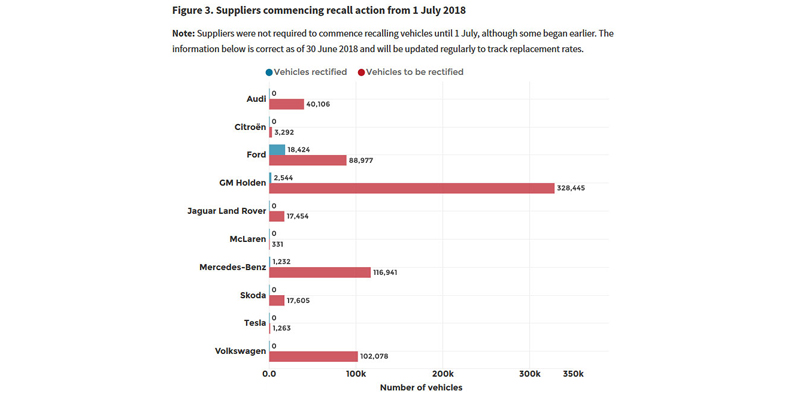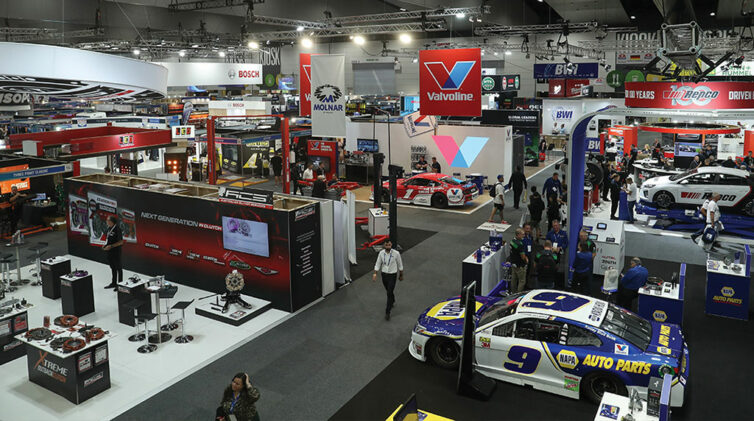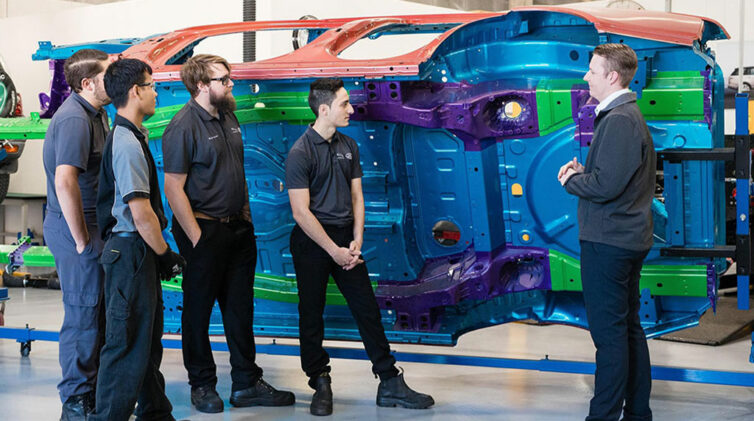The most dangerous airbags, known as Alpha airbags, were fitted to about 115,000 cars and it is estimated that about 19,500 cars with Alpha bags are still unaccounted for and could potentially still be out on Australian roads.
The Australian Competition and Consumer Commission (ACCC) said these airbags require urgent replacement and drivers should avoid driving cars containing the airbags until they have been fixed.
The ACCC published data that shows NSW and Victoria have almost one million vehicles requiring airbag replacement and has termed them “ticking time bombs”.
New data provided by car-makers shows the location of all known registered vehicles and number of airbag inflators affected that require a replacement.
It has also shown that some companies are yet to report repair progress – Volkswagen, Audi, Skoda and Jaguar Land Rover have made no airbag replacement at the time of the report – while others are lagging. The report date is June 30, 2018.
According to the ACCC report, Holden has only repaired 2544 vehicles from a total of 331,000 – a 0.77 per cent repair rate. Holden has the third largest number of vehicles needing airbag replacement, after Toyota (582,756) and Honda (436,965).
BMW has fixed 10.5 per cent of its Takata-affected vehicles while Nissan has completed 16.7 per cent.
The most proactive in the programs have been Mazda with an 84 per cent repair rate, Honda with 74.36 per cent and Toyota-Lexus at 67 per cent. However, Honda’s own figure as at July 2, pegs their completion rate at 91.2 per cent
In a plea to manufacturers and vehicle owners to get the faulty airbags replaced, the ACCC said 1.8 million “potentially deadly” airbags in 1.6 million vehicles still need replacing as part of its compulsory recall program that ends in 2020.
It said that in the past 12 months, 1.1 million airbags in 930,000 vehicles had been replaced.
“As many as two in every seven vehicles within Australia built from 1999 onwards have been installed with faulty Takata airbags that have the potential to injure or kill their drivers and passengers,” the ACCC report said.
Despite good progress, ACCC deputy chair Delia Rickard has warned motorists not to be complacent.
“Don’t ignore or delay responding to a letter or call from your car’s manufacturer asking you to have your airbag replaced,” she said in a statement.
“The airbags degrade over time and can become lethal by “miss-deploying” and firing metal shards at the car’s occupants.
“Our greatest concern remains around the alpha airbags, which can still be found in almost 20,000 cars. Make no mistake, these airbags can kill and our advice is for consumers to check our website to see if there car is affected by this recall. If your car contains an alpha airbag, it should not be driven.”
In addition to manufacturer letters to owners of affected cars, and the ACCC notice, the Federal Chamber of Automotive Industries (FCAI) has launched an interactive website under its campaign “Don’t Die Wondering”.
The public service announcement, created by ad group The Monkeys which is part of Accenture Interactive, leads car owners to the website IsMyAirbagSafe.com.au where they can enter their vehicle registration number to check the airbag safety status.
The ACCC said that the compulsory recall notice was issued on February 28, 2018 and followed the commission’s safety report. It requires car-makers to replace all faulty Takata airbags in Australian vehicles by December 31, 2020.
The commission said that some vehicles will be recalled immediately and others on a rolling basis depending on factors including relative safety risk.
“This means that not all vehicles will be recalled straight away,” it said.
Manufacturers were not required to start recalling vehicles until July 1, although the ACCC said some began earlier. Its information is correct as of June 30, 2018 and it plans to regularly update progress.
Since then some car-makers have officially kicked off their campaigns, with Volkswagen and Skoda announcing the recall on July 30, while Audi started on July 13.
By Neil Dowling
















 Read More: Related articles
Read More: Related articles

